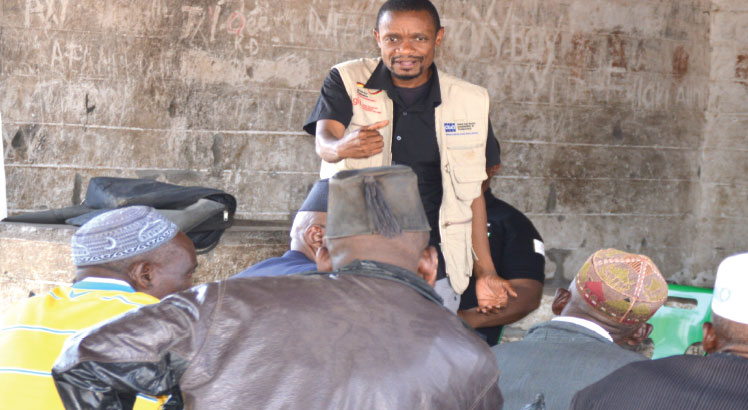Awakening project monitoring spirit
In a virtually wall-less learning shed at Mponda Primary School, a few kilometres from Mangochi boma, chiefs, seemingly pregnant with expectation and authority, sit restfully on crude desks and benches.
It is an exceedingly hot day. Beads of sweat can be seen flowing persistently down the faces of many. However, these chiefs, who have been summoned from Traditional Authority (T/A) Mponda’s area, have braved it with utmost defiance.
Simply put, this assembly, summoned by Centre for Social Accountability and Transparency (Csat), is as valuable as gold.
Here, the chiefs are being drilled on how to hold duty-bearers accountable, mostly during public project implementation.
Narrates Csat head of programmes and policy, Albert Lulaka: “We want to create a vigilant community with an amplified voice that holds duty-bearers accountable to enhance improved public service delivery in local councils.”

These engagements are part of a $149 688 (about K254 million) project called Strengthening Governance Accountability through Citizen Oversight. It is being implemented in Dowa, Machinga and Mangochi districts.
On a larger scale, the project seeks to improve citizen and civil society organisations’ (CSOs) knowledge of district and national level oversight methods for government projects.
Funded by the United States- based National Endowment for Democracy, it drives at strengthening district and national civil society advocacy for government accountability.
Lulaka emphasises that the initiative was born out of discovery of inadequate knowledge among the citizenry, CSOs and some council members about people’s rights and local councils’ roles and responsibilities.
“This has resulted in poor and frail coordination among stakeholders around the social accountability domain,” he says.
Lulaka discloses that the project, which has been under implementation since last year, has achieved significant results as evidenced by roughly 80 percent increase in complaints reporting.
“The toll-free line 3056 has proven to be an invaluable resource for us. Through this channel, we have received numerous reports from individuals in the districts, shedding light on several stalled and substandard projects.
“Some of the reports have indicated that certain projects are still in their foundational stages, despite a significant portion of the allocated funds being disbursed to the contracting parties, up to 80 percent in some cases,” he says.
Chiefs concede that they have been in deep slumber when it comes to monitoring development projects in their communities.
Acting T/A Mponda declares: “Our mentality has been that it is a member of Parliament and councillor that are supposed to provide the oversight role when it comes to local government projects.
“However, from the project meetings, we have been enlightened on how we can ensure that there is transparency and accountability in financing and project implementation.”
In Dowa, the project is being hailed for capacitating CSOs to mobilise communities to demand accountability in public projects.
Dowa CSO Network vice-chairperson George Kaunda states: “It has supported in monitoring and supervising public projects and organised communities to demand accountability, which was generating evidence that informed our advocacy. The project has galvanised CSOs to diversify service monitoring.”
As a product of the project, he says communities in Dowa North Constituency recently established that their authorities only supplied Chakhaza Community Day Secondary School with 25 ‘substandard’ desks against the required 100.
“Communities were capacitated to demand accountability through an interface meeting and the outcome was the delivery of 100 desks of their desired quality,” he discloses.
That incident bore more fruit as Kaunda reveals that “it facilitated the process of reviewing all Constituency Development Fund projects, including Mtsukamakoza Clinic which stalled for about four years”.
T/A Namavi of Mangochi said they embraced the project after being impressed with Csat mobilisation of communities in 2021 to reject a sub-standard classroom block at Timbwiti Junior Primary School.
The move forced Mangochi District Council to withhold payment until the contractor met the prescribed specifications.
“When Csat asked to roll out the project in my area, I did not think twice because of its past intervention when we had that poorly constructed school block.
“From the training we have attended already, there is much will power among chiefs here to be part of the project monitoring.
“With strict monitoring, we believe that there will not be cases of sub-standard infrastructure,” he said during a meeting at St Joseph Primary School.





